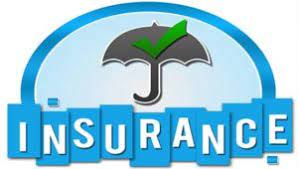In some cases, you may need to cancel your car insurance policy. This can occur if you no longer possess a car, relocate, change coverage, or switch providers. It is not always obvious how to cancel your policy. If you need to cancel your car insurance policy, Businessyield’s guide can assist you in taking the necessary steps.
How To Cancel Your Car Insurance
You’ll get a range of results if you Google “how to cancel an insurance policy” or “how do I cancel my car insurance.” However, the procedure is pretty simple. The insurance editorial team at Businessyield created the following list of best practices:
#1. Purchase a new policy before canceling:
Purchasing a new auto insurance policy before terminating your current policy will prevent you from a coverage lapse. Because driving without insurance is unlawful in most places, a break in coverage could cause your insurance rates to rise.
#2. Contact your insurance company:
Depending on your carrier’s options, you can call your insurer, contact an agent using the company’s mobile app, send in a cancellation request, or visit with an agent in person to cancel your existing insurance policy.
#3. Request to talk with a cancellation agent:
Each provider will most likely have various conditions for terminating a policy. Some providers, for example, may demand you to pay a cancellation charge or offer a 30-day notice prior to your cancellation date. It may be beneficial to speak with an agent directly to clarify what procedures are required.
#4. You may be needed to sign a letter of cancellation:
Because of the convenience of email and online forms, cancellation letters are not as popular as they once were; but, certain vehicle insurers may still require you to write a letter requesting that your coverage be terminated. Your policy number, name, and the date you want your policy canceled are often included in the letter. If you paid for your policy in full and still have months of coverage left, you can add a refund request for the unused portion of your policy.
#5. Request a policy cancellation notification from your motor insurer once everything is finalized:
Carriers will usually send you a note verifying that your policy has been canceled. If you do not receive a notice, you may request one from your insurer to ensure you have a written record of the transaction.
When Should You Cancel Your Car Insurance?
There are several frequent reasons why people cancel their car insurance:
- Changing car insurance providers: Shopping around may result in lower prices.
- Canceling coverage that you no longer require: If you already have a subscription to another service, such as AAA, canceling a coverage provision, such as roadside help, can save you money.
- Selling a car with no plans to drive it: You generally don’t need to keep paying for car insurance if you don’t own a car.
If you still want to own a car, be sure you’ve started coverage with another insurer before canceling your current one. A lapse in coverage puts you at risk of incurring exceptionally significant out-of-pocket expenses in the case of an accident while uninsured. And, if you possess a car, most states need some level of car insurance.
When Should You Not Cancel Your Car Insurance?
If you still own a car, it is never a good idea to cancel your car insurance policy. Almost all states require car owners and drivers to have some level of car insurance coverage. Before canceling your car insurance, you should always check your state’s minimum car insurance requirements.
Except for New Hampshire, every state requires personal liability coverage, and several states additionally require personal injury protection. Personal liability coverage protects you against third-party claims for damages caused by you, whereas personal injury protection covers medical expenses and lost income if you or your passengers are harmed in an accident. Even in states where car insurance is optional, some level of coverage is still suggested if you want to purchase a car.
Canceling Your Car Insurance Without Informing Your Insurer
If you cancel your policy without contacting your insurer, or if you stop paying your car insurance premiums, you may be exposed to additional costs or even a failure to cancel your policy.
Reasons to tell your auto insurance provider of a cancellation:
- While some carriers will cancel your car insurance policy if you do not pay at renewal, many will extend coverage beyond the end of your policy to give you more time to pay missed fees. If you do not pay during the grace period, the insurance may charge you for the coverage extension as well as nonpayment penalties.
- If you pay your premiums by automated bank transfer, insurers will continue to deduct funds from your account until you request cancellation.
- Given that tariffs are always changing, you should complete all outstanding payments and cancellation fees in order to leave on good terms with your carrier. It’s possible that the insurance provider will offer lower rates in the future, and having a good payment history will help you receive the best deal if you decide to return.
- Notifying your insurer of your intention to cancel auto insurance is always a smart idea.
Do Insurance Companies Levy Cancellation Fees?
When canceling a car insurance policy or a specific coverage, most insurance providers will not impose a cancellation fee. For canceling auto insurance early, some companies may levy a flat fee, generally less than $100, or a short rate fee.
When policyholders cancel their car insurance before the policy’s expiration date, insurers utilize a proprietary “short rate” to compute their earned premium. The short rate is multiplied by the amount of premium left on your policy.
- A 15% short rate applied to a 12-month policy cancellation nine months after beginning would be 15% of the remaining 3-month premium.
- A 10% short rate applied to a 6-month policy cancellation four months after beginning would be 10% of the remaining 2-month premium.
Some insurers will waive the cancellation cost if you cancel before the policy’s expiration date.
Is It Possible to Cancel Auto Insurance at Any Time?
Yes, most car insurance contracts permit policyholders to cancel coverage at any time. Cancellation normally necessitates a signed form or written notification of cancellation that indicates the intended policy end date. In some situations, you may be required to pay a cancellation fee as well.
Make careful to notify your insurer of the cancellation, as failure to do so may result in additional fees.
Will I Receive a Refund if I Cancel My Auto Insurance?
In most situations, if you paid your premium in advance and cancel your policy before the end of the term, the insurance provider must reimburse the remaining balance. Most car insurance companies will prorate your refund based on how long your current policy was in effect.
The insurance sector is highly regulated, with insurance regulations in each state governing how companies must handle returns. In Nebraska, for example, an auto insurer must notify you of any qualifying reimbursements within 15 business days after cancellation. If you finance your premium through a premium finance firm in several jurisdictions, including Texas, the insurance company may refund the unused money to the finance company rather than you.
Unless otherwise indicated in a statute, auto insurance providers are usually not required to return your money within a specific time frame. Most insurance contracts indicate that a refund will be issued “within a reasonable timeframe.” To avoid refund issues, notify your auto insurer of your intention to cancel when it comes time to renew your policy. Before canceling, check with your carrier to learn about the policy cancellation terms.
Fees for Canceling Car Insurance
Canceling your policy before the end of its term may result in a cancellation cost, depending on the auto insurance company. State laws can determine whether a fee is permissible and if so, it is up to the insurer to set that amount, which is frequently deducted from the prorated return. Knowing whether your state allows fees could help you plan ahead of time for possible cancellation fees.
What Happens if You Stop Paying Your Car Insurance Premiums Without Terminating Your Policy?
If you want to cancel your policy, you must contact your insurer or agent. If you stop paying your premiums but do not cancel your policy, your carrier may continue to seek payment from you throughout the length of your policy. You could be charged for the time your policy was active but not paid for.
Failure to properly tell your auto insurer that you intend to cancel coverage may have an influence on your future experience finding auto coverage. Even if you intend to switch car insurance companies, failing to make payments on time may result in poor payment history, making it more difficult to obtain reasonable rates. Similarly, if you have an automated bank account withdrawal set up to pay your premiums, you may be paying for coverage that you do not want to keep.
Switching Car Insurance
Finding a better-suited policy for you — whether it’s cheaper, you’re moving to share a policy with a spouse, or you want to package it with other insurance products — is a perfectly valid reason to cancel your current car insurance.
But, before you start looking for quotes, keep in mind that there may be an even better approach to receive lower rates: Inquire with your current insurer. Because some car insurance companies may be willing to reconsider your rates, this should be your first move. If that isn’t an option, look into car insurance comparison shopping.
Take note of the start date if you find a lower car insurance quote and purchase a new policy. Then, contact your previous insurance carrier to cancel your policy, and make sure the plans finish and begin on the same day.
Conclusion
Canceling car insurance is an excellent choice if you want to transfer to a more affordable policy, one with better coverage, or both. Check with your current provider to see if you are eligible for any reductions that could cut your premiums before switching.
Adjustments to your coverage, such as lowering your coverage limits or dropping special equipment coverage after purchasing a new car without custom parts, can also help you save money and avoid having to cancel your auto insurance. Make sure to address any coverage adjustments with your carrier that can lower your premiums while still providing you with enough protection in the event of an accident.
It’s always a good idea to look around for inexpensive car insurance because you might be able to discover a lower cost without changing your coverage.
How To Cancel Car Insurance FAQs
Can you cancel car insurance anytime?
Yes, most car insurance contracts permit policyholders to cancel coverage at any time.
Does it cost anything to cancel car insurance?
Some insurance companies will charge you a fee if you cancel your car insurance policy early. This price could be a fixed fee of $50 or a short-term fee of 10% of your remaining premium.
Can I cancel car insurance online?
Most insurance allows you to cancel by phone, in writing, or in person. Most car insurance providers will not allow you to cancel your policy online.
Related Articles
- AMERICAN RESIDENTIAL WARRANTY: Best Easy Guide for Newbies
- WEDSAFE: Is This Wedding Insurance Legit or Scam?
- How To Write A Check: Best Ways To Write A Check (Updated)
- What Is Car Insurance Premium? Average Costs In 2022
- How to Fill Out a Money Order Correctly: Step-by-Step Guide






